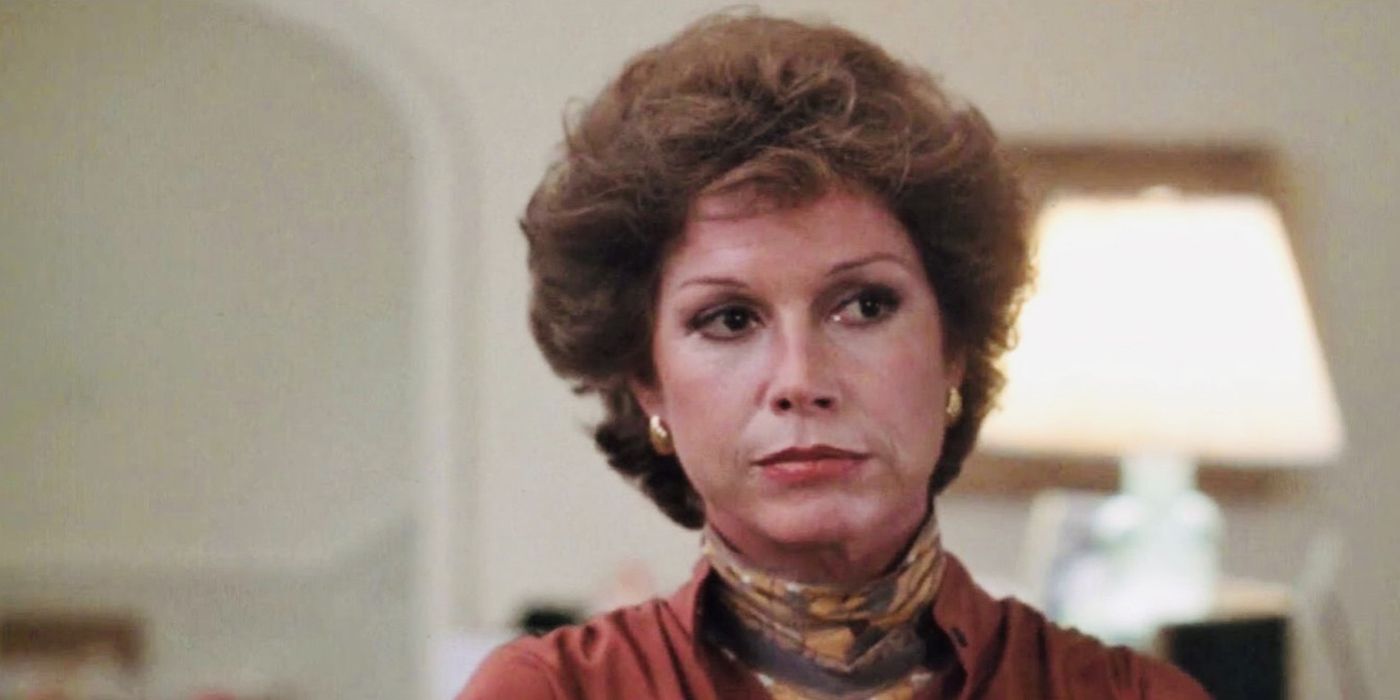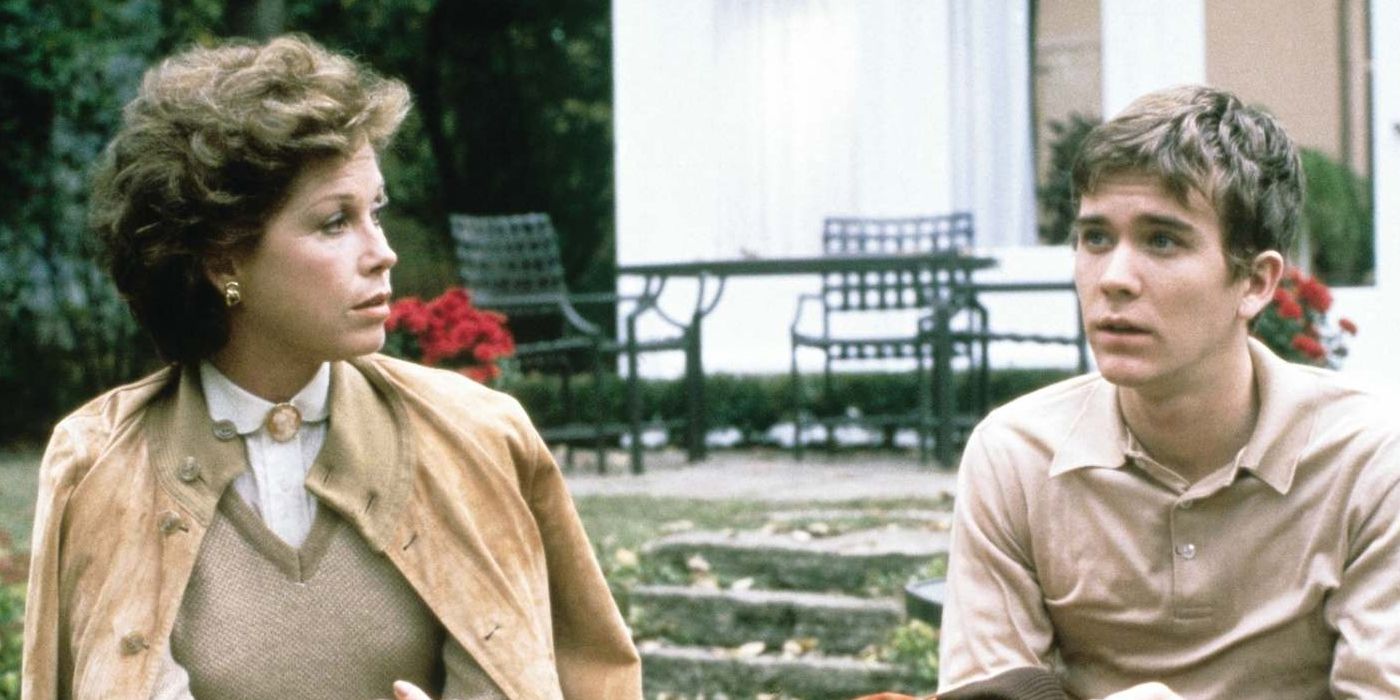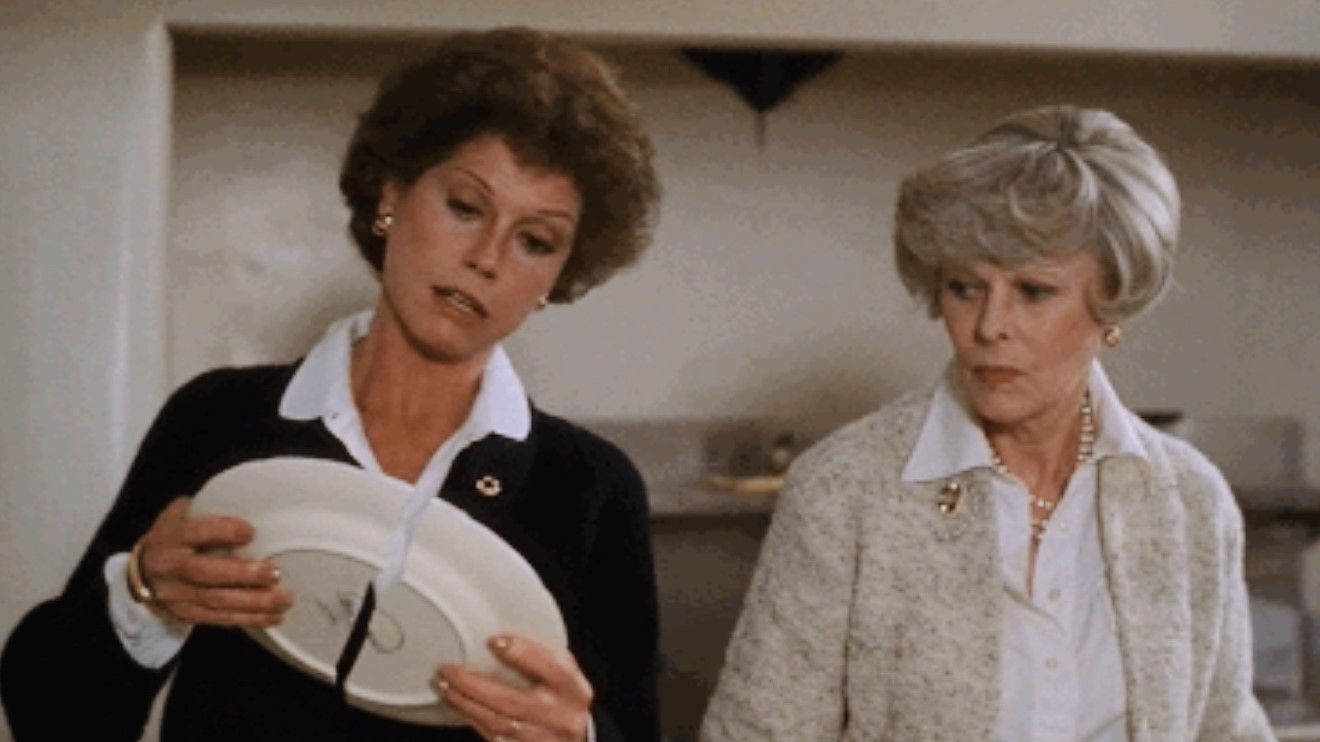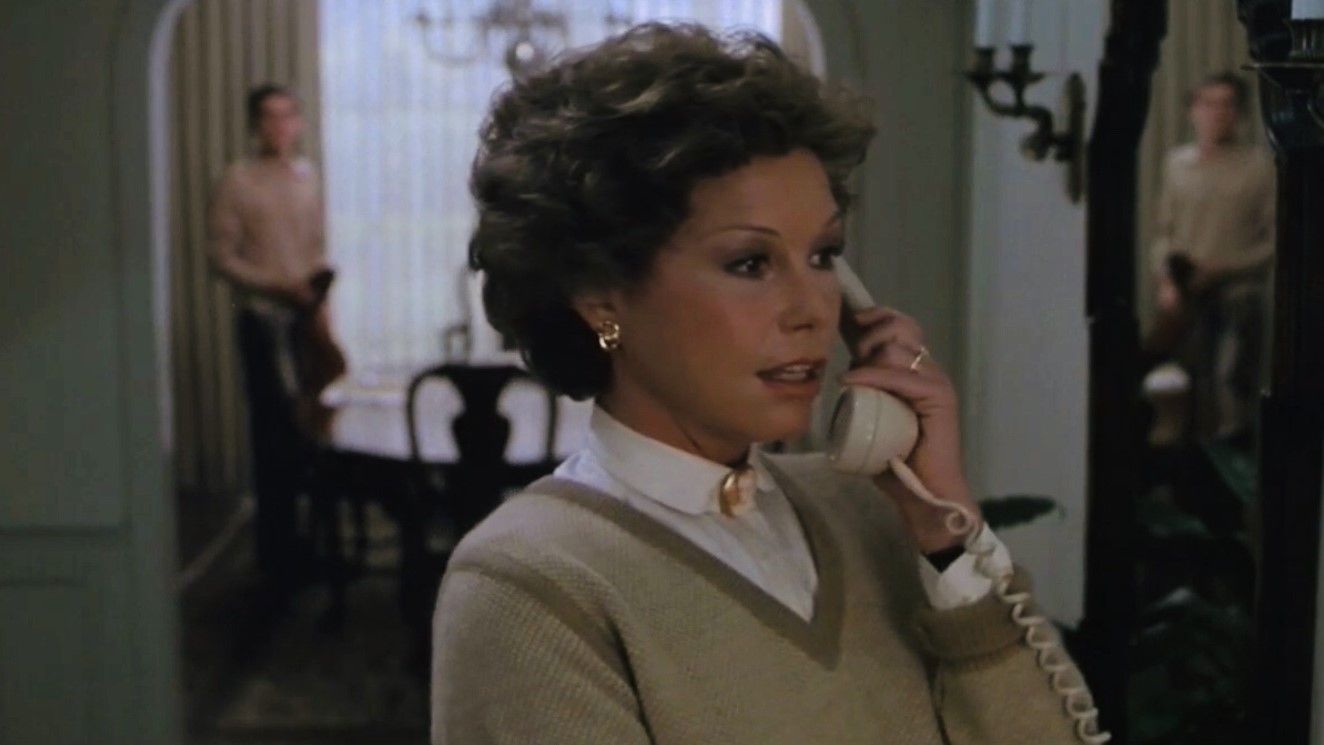In 1980, Mary Tyler Moore, the woman who turned the world on with her smile, delivered one of the most astonishingly chilling performances of the decade in Robert Redford's directorial debut, Ordinary People. Moore's Oscar-nominated performance wiped away the wholesome image that began with The Dick Van Dyke Show in the 1960s and continued with The Mary Tyler Moore Show in the 1970s. Suddenly, America's television sweetheart was now the big screen's most hated mother. But was Moore's Beth Jarrett really a monster, or was she an irreparably broken woman unable to navigate a life filled with tragedy? On the 42nd anniversary of this Best Picture winner, it's important to look back on Moore's incredible portrayal of one of cinema's most complicated characters.
A Woman Intent on Holding Her Family Together
Ordinary People is the story of an upper-upper middle-class family dealing with two traumatic events. The family's oldest son Buck (Scott Doebler) has drowned in a boating accident. Younger brother Conrad (Timothy Hutton in an Oscar-winning performance), who survived the accident, is racked with guilt and has attempted suicide. Moore's Beth is the matriarch struggling to hold the family — and herself — together in the aftermath of these upheavals.
Outwardly, Beth is in control. She is perfectly coiffed and impeccably dressed, and her home is a show palace. The place settings at her dining table are flawlessly aligned, and the flatware in her kitchen drawer is neatly wrapped within white cloth napkins secured squarely in the center by gleaming silver rings. There isn't a hint of disorder in the Jarrett household. When tax attorney husband Calvin (Donald Sutherland) comes home after a busy day at the office, Beth is there to greet him with a tender kiss on the cheek and a delicious dinner arranged in an aesthetically pleasing display on his plate.
To an outsider looking in, the horrible events of the past which have befallen the Jarrett family have been completely healed and forgotten. It seems as if Beth believes that if everything is in order on the exterior, everything will be in order on the interior, too. But there's a tension between Beth and her son Conrad so thick that even a samurai's sword couldn't slice it apart. At the dinner table, Beth makes sure to seat herself as far away from Conrad as possible. When Conrad says he's not hungry, Beth immediately grabs his plate and empties it down the garbage disposal without protest or discussion. There's a coldness in their relationship so palpable, audiences can practically feel the chill.
The Unbearable Pain of Loss
It's easy to paint Beth one-dimensionally as a woman resentful of a son she sees as responsible for the death of her firstborn, but Moore's portrayal is much more complicated and sorrowful. There's an especially heartbreaking scene in the film's opening minutes when Beth, returning from a shopping spree, walks by the closed bedroom door of her deceased son Buck. Hesitating, she opens the door, walks in, and sits on his bed. As the camera pans across the room, viewers see that Buck's room has been untouched since his passing. His trophies and awards are still on the shelves, posters hang on the walls, pictures with friends and family remain on his nightstand. As Beth's eyes move across the room, her face softens, as if she's remembering the love and warmth Buck brought to her life. Suddenly, Conrad, standing outside Buck's door, surprises her. Startled, Beth snaps back into the present, but there's a brief, telling moment when she looks at Conrad with a sense of despair, like she's imagining what would happen if she lost him, too. Beth isn't just grieving the loss of Buck; she's also visualizing the unthinkable — a life without Conrad — and because she simply can't cope with such a possibility, she has shut herself down emotionally. She and Conrad share an awkward and superficial conversation, and she exits in a rush.
In a later scene, Beth sees Conrad sprawled out on a chair in the backyard, looking blankly upward. She joins him outside and does her best to connect, asking him what he's doing. Conrad answers, "I'm thinking." "About what?" she asks gently. "Nothing," Conrad responds tersely. Beth continues to push, looking for anything that will form common ground. The two share a memory of a pigeon that used to hide in their garage and that would scare Beth whenever she started the car. For a few moments, the tension eases, and it can be seen in Beth's more relaxed posture and the hint of a smile on her otherwise unyielding face. Then Conrad mentions Buck. Beth becomes rigid like a department store mannequin and once again makes a quick escape from the situation. The mere mention of Buck's name is something utterly unendurable for Beth. She doesn't choose to close herself off from Conrad; she just can't risk it emotionally. Moore's ability to convey Beth's anguish in this moment is astounding.
Guarding the Family's Secrets
To assuage the constant fear she carries of losing her only remaining son, Beth builds a strong emotional fence around her entire family. At a holiday party, she overhears her husband talking to another guest about Conrad's recent visits to a psychiatrist. On the way home, Beth is livid and lashes out at Calvin for discussing the subject, calling it "a violation of privacy. Our privacy. The family's privacy." It's not so much that Beth is in denial of her son's struggles, but that she, in the only way she knows how, is trying to protect him from any other outside damage that can be done.
By keeping up appearances, by not letting anyone get beyond the emotional barriers she's constructed, Beth can keep her family safe. Her anger and frustration come from her inability to get Calvin to understand that. "This is my family," she tells Calvin. "And if we have problems, we'll solve them in the privacy of our own home." When Beth finds out from a friend that Conrad has quit the swim team, again she lashes out. Conrad's immediate reaction is predictable and understandable. "The only reason she cares, the only reason she gives a fuck about it, is because someone else knew about it first!" Yes, to Beth, the outward appearance of stability is essential, but it's a mode of protection for her, not just a superficial display. Conrad's withholding of this information sends Beth's mind to the time before Conrad's suicide attempt, when he was disappearing for hours on end and lying to his parents. It's a trigger for her deepest fears. What's extraordinary about Moore's performance in this scene is her ability to simultaneously play external coldness and inner fear.
The Walls Crumble
As the film progresses, the facade Beth has tried so hard to maintain begins to show cracks. While shopping in a department store, she finds herself standing almost catatonically, detached, her face conveying a soul mired in defeat. The reality of her inability to manage her inner turmoil is presenting itself more frequently. Beth and Calvin take a trip to Houston to visit her brother and sister-in-law, and it's during an outing on the golf course that Beth uncharacteristically breaks down in public and releases her vulnerability.
Following an argument with Calvin about Conrad, Beth's brother Ward (Quinn Redeker) tries to console her by telling her he wants her to be happy. Her pained, angry reaction reveals the fears she's been harboring since Buck's death, exposing the reasons for her apparent distance from Conrad. "You tell me the definition of 'happy,' but first, you better make sure that your kids are good and safe, that no one's fallen off a horse, or been hit by a car, or drowned in that swimming pool you're so proud of. And then you come to me and tell me how to be happy."
Stripped raw emotionally, Beth's response is a confession. She doesn't resent Conrad, but she can't bear the thought of losing him like she lost Buck, so she can't let herself feel anything. There's no going back to the pretense of strength for Beth now. Pandora's Box has been opened, and the darkness has been released. When Beth returns home and Calvin hugs her, she's paralyzed, unable to return his affection. Again, Moore conveys the depths of Beth's fragmented psyche without a single word. It's her stiff countenance and her vacant stare that tell the audience she's past the point of redemption.
A Soul Irretrievably Broken
Calvin's realization that he's lost Beth is one of the film's most shattering moments. Sitting in the dark in the wee hours of the morning, he tells her, "It's as if when Buck died, you buried all your love with him...I don't know if I love you anymore, and I don't know what I'm going to do without that." Unable to refute what he's said, Beth turns away, walks upstairs, and begins packing her suitcase. Shaking uncontrollably, she's finally lost control both emotionally and physically. While some may view Beth's departure as the just desserts for a woman with ice in her veins, Moore is too smart an actress to portray Beth so simplistically. Instead, in her final scene, Moore shows viewers a woman who, like the son who drowned, isn't strong enough to hold on, despite what she believes are her most heartfelt efforts.
Beth Jarrett is arguably one of the most enigmatic female characters in film, and Moore does an exceptional job of showing audiences all the pieces of a woman beset and cursed by insurmountable tragedy. That Moore's performance continues to be discussed and admired over 40 years since the release of Ordinary People is a testament to her remarkable talent.



.jpeg)

